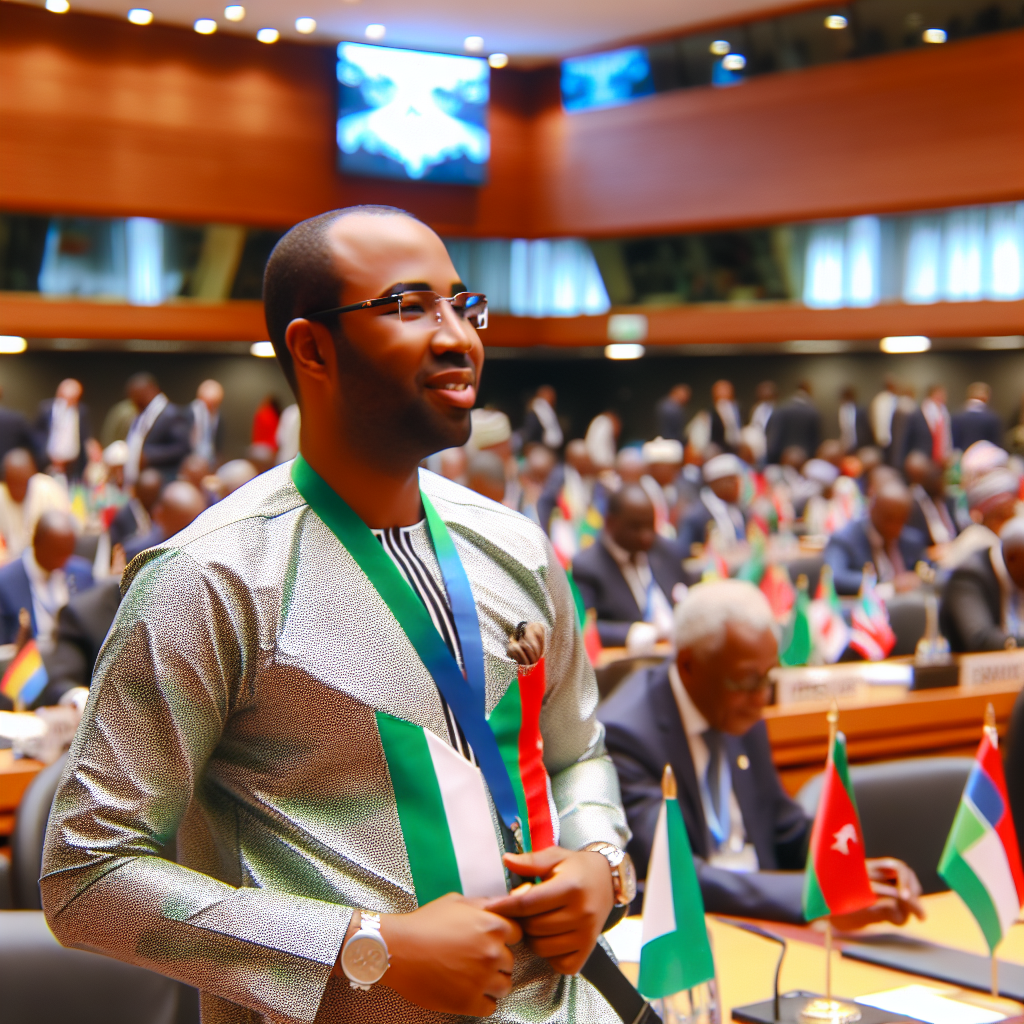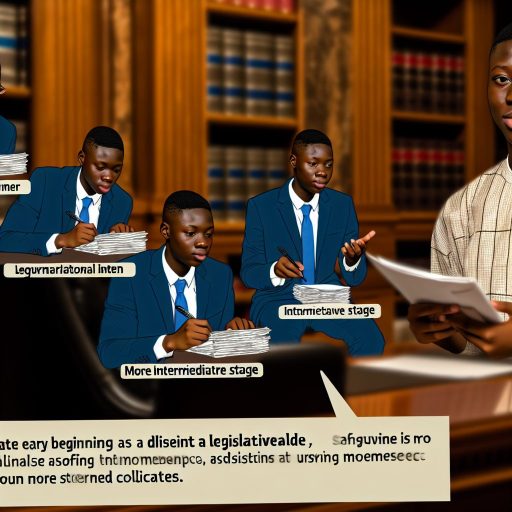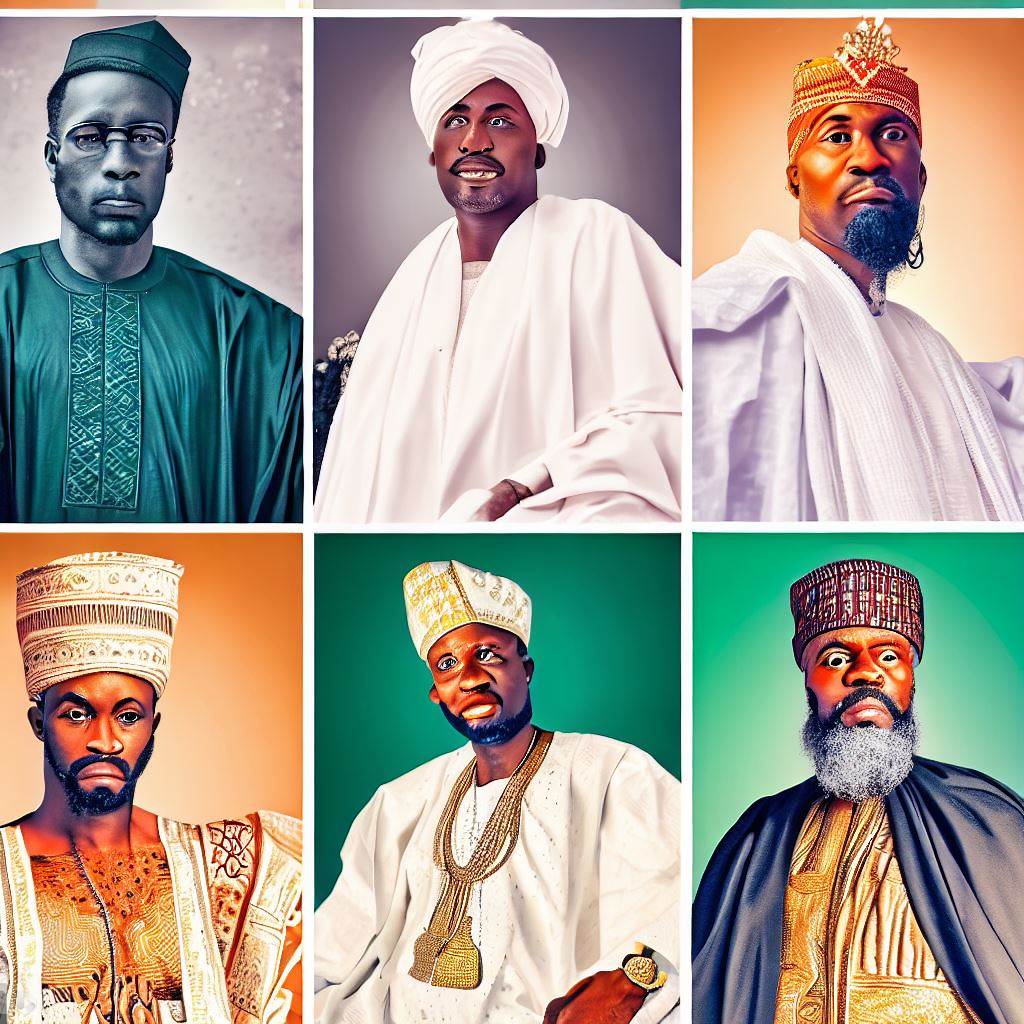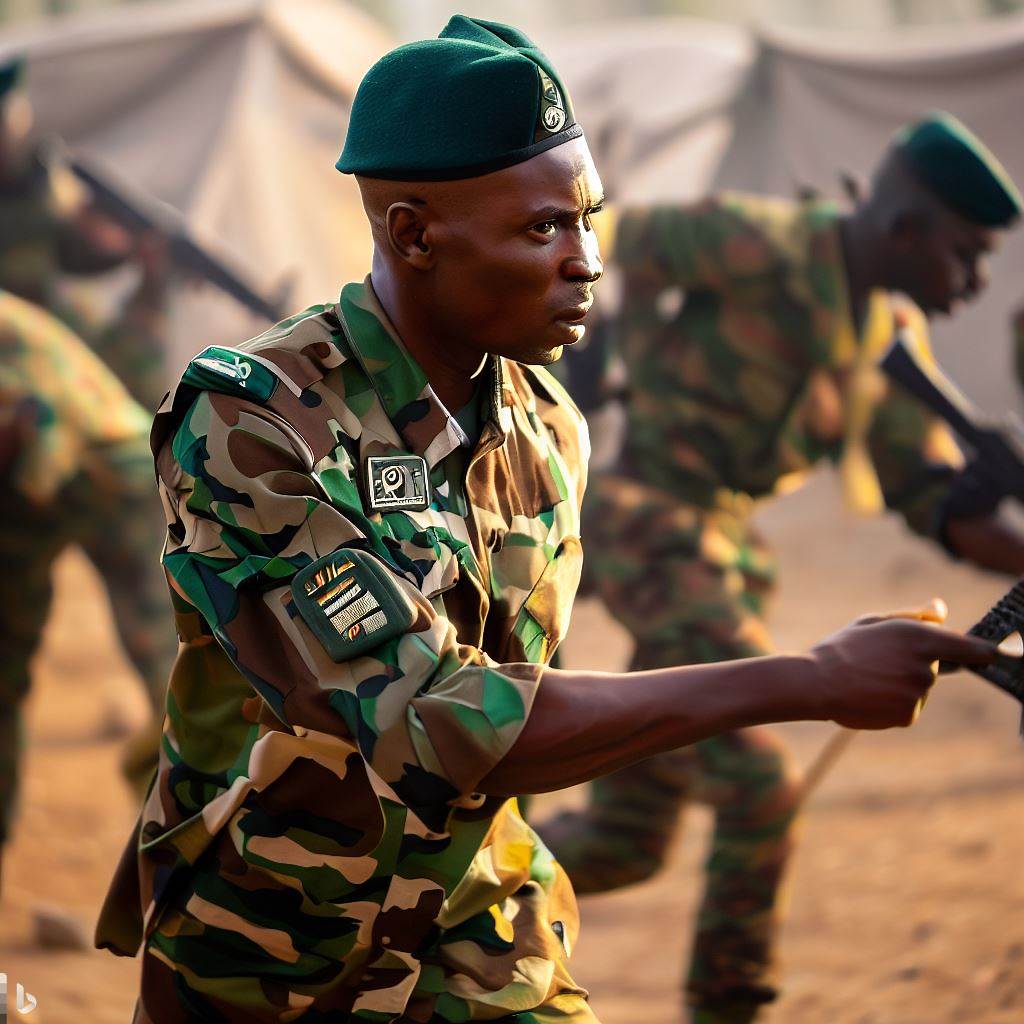Overview of Diplomacy in Nigeria’s Foreign Relations
Nigeria plays a crucial role in international diplomacy.
The country aims to strengthen ties with other nations.
Its foreign relations focus on economic, political, and cultural collaborations.
Historical Context of Nigerian Diplomacy
Nigeria’s diplomatic journey began post-independence in 1960.
Initially, it focused on anti-colonialism and decolonization.
Over the years, Nigeria’s approach evolved to embrace multilateralism.
Thus, it became a prominent player in regional and global affairs.
Key Functions of Diplomats in Nigeria
Diplomats play several pivotal roles in Nigeria’s foreign relations.
First, they represent Nigeria’s interests abroad.
They engage in negotiations to resolve disputes.
Additionally, they facilitate trade agreements with partner countries.
Moreover, diplomats promote cultural exchange and understanding.
Challenges Faced by Nigerian Diplomats
Nigerian diplomats encounter various challenges in their roles.
For instance, political instability affects diplomatic efforts.
Furthermore, economic constraints limit operational capacity.
Lastly, security issues impact the ability to conduct foreign relations effectively.
Future Directions for Nigerian Diplomacy
Nigeria’s diplomatic future hinges on adaptive strategies.
Strengthening regional alliances remains a priority.
Additionally, diversifying partnerships can yield economic benefits.
Investing in training diplomats will enhance negotiation skills.
Finally, promoting public diplomacy can bolster Nigeria’s international image.
Role of Diplomats in Promoting National Interests
Representation of Nigerian Interests
Diplomats represent Nigeria on the global stage effectively.
They articulate the country’s positions and policies clearly.
Through negotiations, they safeguard Nigeria’s interests abroad.
Strong representation fosters collaboration with other nations.
Facilitating Bilateral and Multilateral Relations
Diplomats play a crucial role in establishing international partnerships.
They engage in discussions that lead to bilateral agreements.
Moreover, they participate in multilateral forums to enhance Nigeria’s prominence.
These relations can boost trade and investment opportunities.
Advocating for Economic Development
Diplomats actively promote Nigeria’s economic interests internationally.
They attract foreign investment through strategic outreach.
Additionally, they assist in negotiating favorable trade terms.
This involvement helps to stimulate Nigeria’s economic growth.
Promoting Cultural Diplomacy
Cultural diplomacy is essential for enhancing Nigeria’s image abroad.
Diplomats showcase Nigeria’s rich cultural heritage through events.
Such initiatives foster mutual understanding and respect with other nations.
They help to create a positive narrative about Nigeria globally.
Managing Conflicts and Crisis
Diplomats are vital in conflict resolution efforts.
They work to mediate disputes and prevent escalation.
Moreover, during crises, they provide critical support to citizens abroad.
This ensures safety and well-being during challenging situations.
Influencing Global Policy
Nigerian diplomats engage in policy discussions at international forums.
They advocate for policies that benefit Nigeria and other developing nations.
Influence in global policy-making enhances Nigeria’s stature internationally.
Consequently, this can lead to policies that favor Nigeria’s development goals.
Economic Benefits Derived from Diplomatic Engagements
Trade Opportunities
Diplomats play a crucial role in creating trade opportunities for Nigeria.
They negotiate trade agreements that benefit Nigerian businesses.
For instance, recent agreements with the European Union opened new markets.
As a result, Nigerian exports have increased in various sectors.
Furthermore, these agreements attract foreign investments into the country.
Investment Promotion
Promoting investment is a vital aspect of diplomatic engagements.
Diplomats present Nigeria as an appealing destination for investors.
They highlight the country’s abundant resources and strategic location.
Moreover, successful diplomacy can lead to new job opportunities.
This growth is essential for national economic development and stability.
Access to International Funding
Diplomatic channels provide Nigeria access to international funding.
Through partnerships with global organizations, Nigeria secures loans and grants.
These funds often support critical infrastructure projects.
Additionally, they facilitate innovative programs aimed at poverty reduction.
Consequently, effective diplomacy plays a crucial role in national development.
Cultural Exchange and Tourism
Diplomatic efforts enhance cultural exchange, promoting Nigeria’s tourism sector.
By showcasing Nigerian culture abroad, diplomats attract visitors to the country.
This influx provides a boost to the hospitality and service industries.
Moreover, cultural festivals foster international cooperation and understanding.
In turn, they create economic opportunities for local artisans and businesses.
Strengthening Bilateral Relations
Building strong bilateral relations enhances economic stability.
Diplomats engage with foreign nations to strengthen mutual interests.
This collaboration often leads to joint ventures and partnerships.
As a result, both countries can share expertise and resources.
Such synergy can significantly advance Nigeria’s economic goals.
You Might Also Like: How to Join Nigeria’s Immigration Service and Advance Your Career
Cultural Diplomacy: Strengthening Nigeria’s Global Image
Defining Cultural Diplomacy
Cultural diplomacy involves engaging with other nations through cultural exchanges.
This engagement fosters understanding and goodwill between countries.
Through cultural diplomacy, Nigeria can showcase its rich heritage and traditions.
Promoting Nigerian Arts and Literature
Nigerian diplomats play a vital role in promoting local arts abroad.
Their efforts create an appreciation for Nigerian literature, music, and visual arts.
Every year, numerous cultural festivals highlight Nigeria’s artistic prowess.
Events like the Abuja International Film Festival attract global audiences.
Strengthening Educational Ties
Cultural diplomacy also encompasses educational initiatives between nations.
Nigerian diplomats facilitate student exchange programs with foreign universities.
These exchanges enhance academic collaboration and innovation.
Furthermore, they promote Nigeria as a hub for learning and research.
Engaging in Public Diplomacy
Public diplomacy involves influencing foreign public opinion about Nigeria.
Diversifying communication strategies helps dispel myths about the country.
Social media campaigns play an essential role in this engagement.
Through these channels, Nigeria can share its success stories and achievements.
Building International Partnerships
Nigerian diplomats work to establish partnerships with other nations.
Publish Your Professional Profile, Business or Brand
Showcase your expertise, gain trust, and boost visibility instantly on Professions.ng.
Publish NowCollaborative projects in arts and education lead to mutual benefits.
These partnerships enhance cultural understanding and promote peace.
Additionally, they strengthen diplomatic relations and foster economic ties.
Showcasing Nigeria’s Cultural Diversity
Nigeria’s rich tapestry of cultures can serve as a powerful diplomatic tool.
Highlighting the nation’s diversity attracts interest from around the world.
Cultural festivals can bring together people from various backgrounds.
Such events create environments for dialogue and collaboration.
Explore Further: How to Build a Rewarding Career in Nigeria’s Civil Service
Conflict Resolution and Peacekeeping Roles of Diplomats
Significance of Diplomats in Conflict Resolution
Diplomats play a critical role in resolving conflicts between nations.
They facilitate dialogue to de-escalate tensions and misunderstandings.
Effective communication is essential for successful negotiations and resolutions.
Furthermore, they often act as mediators in complex multi-party discussions.
By exhibiting cultural sensitivity, diplomats foster mutual respect among conflicting parties.
Peacekeeping Efforts
Diplomats contribute significantly to international peacekeeping missions.
They help coordinate actions between different countries and organizations.
These efforts aim to maintain stability in conflict-prone regions.
Moreover, diplomats work closely with local governments and communities.
They advocate for peaceful coexistence and development initiatives.
Case Studies of Diplomatic Success
Numerous instances showcase the effectiveness of Nigerian diplomats in peacekeeping.
For example, their involvement in the Economic Community of West African States has been notable.
Additionally, their efforts in mediation during the Liberian civil war demonstrate their impact.
Such cases highlight the importance of experienced diplomats in conflict resolution.
Collaboration with International Organizations
Diplomats also partner with organizations like the United Nations.
They coordinate strategies to ensure the effectiveness of peacekeeping missions.
This collaboration amplifies the reach and resources available for conflict resolution.
In essence, working together strengthens diplomatic efforts.
Challenges Faced by Diplomats
Despite their importance, diplomats encounter numerous challenges in their roles.
Shifting political climates can hinder peacekeeping initiatives.
Moreover, language barriers and cultural differences can complicate negotiations.
Ultimately, they must navigate complex international relations landscapes.
Gain More Insights: How to Join Nigeria’s Customs Service and Build a Thriving Career

Impact of Diplomatic Relations on Trade and Investment
Enhancing Trade Opportunities
Diplomatic relations significantly enhance trade opportunities for Nigeria.
These connections facilitate smoother transactions between countries.
For instance, recent agreements with Canada increased wheat imports.
Moreover, partnerships with Asian nations have diversified Nigeria’s export markets.
Consequently, trade volumes have grown, benefiting the economy.
Attracting Foreign Investment
Strong diplomatic relations attract foreign investment to Nigeria.
International investors seek stable environments to establish operations.
Nigeria’s diplomatic engagement helps reassure potential investors.
For example, investments in the oil sector have surged due to trust built through diplomacy.
This influx of foreign capital enhances local job creation and technological transfer.
Building Economic Partnerships
Economic partnerships stem from effective diplomatic relations.
These partnerships lead to collaborative projects that stimulate growth.
Joint ventures in agricultural development illustrate this collaboration.
Furthermore, partnerships with European nations have improved infrastructure.
As a result, Nigeria’s competitiveness in global markets has increased.
Reducing Trade Barriers
diplomats play a crucial role in reducing trade barriers.
Negotiations can lead to favorable trade agreements.
This process involves addressing tariffs and import restrictions.
Thus, Nigerian goods can reach larger international markets.
Ultimately, this benefits local producers and consumers alike.
Find Out More: High-Paying Government and Military Jobs in Nigeria
Challenges Faced by Nigerian Diplomats Abroad
Political Instability in Host Countries
Nigerian diplomats often encounter political unrest in host countries.
This instability can hinder their work and impact diplomatic relations.
Consequently, they face challenges in ensuring safety and security.
Furthermore, such conditions may limit their ability to engage stakeholders.
Cultural Differences and Misunderstandings
Cultural differences present significant challenges for Nigerian diplomats.
They must navigate varying customs, traditions, and social norms.
This often leads to misunderstandings in diplomatic interactions.
Additionally, language barriers can complicate communication efforts.
Limited Resources and Support
Nigerian diplomats often operate with limited resources abroad.
This can affect their effectiveness in carrying out diplomatic missions.
Insufficient funding restricts their ability to organize events and outreach.
Moreover, a lack of personnel may strain their capacity to respond.
High Expectations from the Home Country
Nigerian diplomats carry high expectations from the Nigerian government.
They must represent Nigeria’s interests while maintaining professionalism.
These expectations can create pressure that affects decision-making.
Moreover, they may face criticism if outcomes do not meet these expectations.
Geopolitical Challenges
Nigerian diplomats navigate complex geopolitical landscapes.
Shifts in international relations can complicate their diplomatic efforts.
They often need to adapt to new dynamics quickly.
Consequently, this might demand ongoing diplomatic engagement and negotiation.
The Future of Diplomacy in Nigeria: Trends and Recommendations
Emerging Trends in Diplomacy
Nigeria’s diplomatic landscape is evolving rapidly.
Globalization significantly influences international relations today.
Technology also plays a vital role in modern diplomacy.
In addition, non-state actors increasingly participate in diplomatic efforts.
As a result, traditional diplomatic methods are adapting to current needs.
Strengthening Bilateral Relations
Bilateral relationships remain crucial for Nigeria’s foreign policy.
Fostering partnerships with countries like China and the U.S. is essential.
These relationships promote trade and investment opportunities.
Moreover, Nigeria can leverage these partnerships for regional stability.
Enhancing Multilateral Engagement
Active participation in multilateral organizations is vital.
Nigeria should continue its involvement in the African Union and ECOWAS.
Such engagements offer platforms for addressing common challenges.
Additionally, they enhance Nigeria’s reputation on the global stage.
Recommendations for Future Diplomacy
There are several strategies Nigeria can implement to enhance diplomacy.
- Invest in training for diplomats to improve their skills.
- Utilize technology for better communication and outreach.
- Encourage public diplomacy to engage citizens in foreign relations.
Furthermore, Nigeria should prioritize conflict resolution in its diplomatic agenda.
Publish Your Professional Profile, Business or Brand
Showcase your expertise, gain trust, and boost visibility instantly on Professions.ng.
Publish NowDiplomacy can serve as a tool for promoting peaceful coexistence within Africa.
Finally, consistent evaluation of diplomatic efforts will ensure adaptability.
Additional Resources
Historical Documents – Office of the Historian
President Clinton Hosts First White House Conference on Culture …




